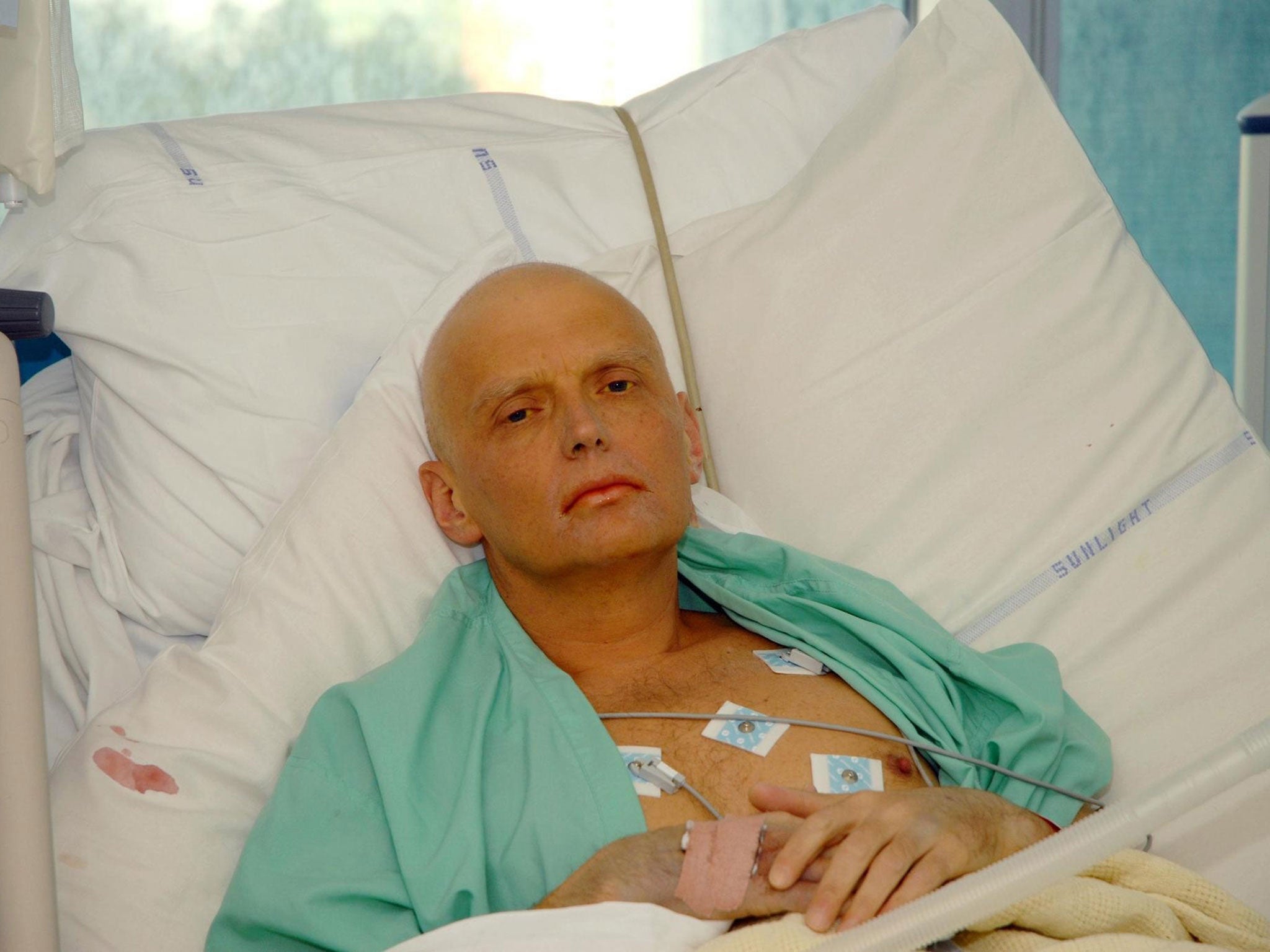Alexander Litvinenko: Government refuses calls for public inquiry into death
Spy's widow accuses UK of protecting the Russian state

Your support helps us to tell the story
From reproductive rights to climate change to Big Tech, The Independent is on the ground when the story is developing. Whether it's investigating the financials of Elon Musk's pro-Trump PAC or producing our latest documentary, 'The A Word', which shines a light on the American women fighting for reproductive rights, we know how important it is to parse out the facts from the messaging.
At such a critical moment in US history, we need reporters on the ground. Your donation allows us to keep sending journalists to speak to both sides of the story.
The Independent is trusted by Americans across the entire political spectrum. And unlike many other quality news outlets, we choose not to lock Americans out of our reporting and analysis with paywalls. We believe quality journalism should be available to everyone, paid for by those who can afford it.
Your support makes all the difference.The Government has been accused of being irrational and unprofessional as it was revealed that it had refused to hold a public inquiry into the death of Russian spy Alexander Litvinenko.
Last month Coroner Sir Robert Owen, who is in charge of the inquest – which has yet to take place more than six years after the 43-year-old spy died of polonium-210 poisoning – controversially indicated that the Government’s determination to keep many documents secret was making his task impossible. He announced he was writing to Justice Secretary Chris Grayling to request that a public inquiry, which would have powers to consider secret evidence, be held instead
But today, in a devastating setback for Mr Litvinenko’s widow Marina, he revealed that the Government had refused her impassioned calls for a public inquiry.
Ben Emmerson QC, representing Mrs Litvinenko, told the hearing that the Government had shown an "utter lack of professionalism" with the way it had handled the request.
"The repeated catalogue of broken promises is a sign of something gone awry," Mr Emmerson said.
The barrister told the hearing that the family would like to see a judicial review into the decision not to hold a public inquiry on the grounds of "irrationality".
Outside the Royal Courts of Justice, in London, Mrs Litvinenko said: "Were they trying to protect the Russian state? Were they trying to protect national security secrets?"
She described the way the Government handled its decision not to hold a public inquiry as "impolite and rude" but said she remained “optimistic” they would still get to the truth.
Alex Goldfarb, a friend of the Litvinenko family, said: "It's absolutely transparent that the Russian government is behind this murder. The evidence has been seen by the Coroner and the courts.
"There's prima facie evidence that the Russian government is behind it. There's some sort of collusion behind the scenes with Her Majesty's Government and the Kremlin to obstruct justice."
Elena Tsirlina, Mrs Litvinenko's solicitor, insisted the decision not to hold a public inquiry followed "months of talks between the two governments at the highest level" between the prime ministers of both Russia and Britain.
"What deals have been made behind the scene is difficult to know,” she added.
Mr Litvinenko died in November 2006 after meeting two former KGB contacts - Andrei Lugovoy and Dmitry Kovtun - at the Millennium Hotel in London's Grosvenor Square. His widow Marina Litvinenko has always maintained that her husband, who fled to the UK in 2000, was working with MI6.
Lawyers for Foreign Secretary William Hague applied for information relating to Russian state involvement, as well as how much British intelligence services could have done to prevent the death, be excluded from the inquest under Public Interest Immunity (PII) claims.
Sir Robert, who was appointed assistant deputy coroner, rejected parts of the PII application but upheld the Secretary of State’s claim on the two central issues of Russian involvement and preventability.
Pointing out that he had no power to take evidence in secret, Sir Robert said he was in danger of failing “to discharge my duty to undertake a full, fair and fearless inquiry into the circumstances of Mr Litvinenko’s death”.
A Government spokesman said yesterday: "We believe that the coroner's inquest can continue to effectively investigate the circumstance of Mr Litivenko's death and we will continue to co-operate fully with it."
Join our commenting forum
Join thought-provoking conversations, follow other Independent readers and see their replies
Comments